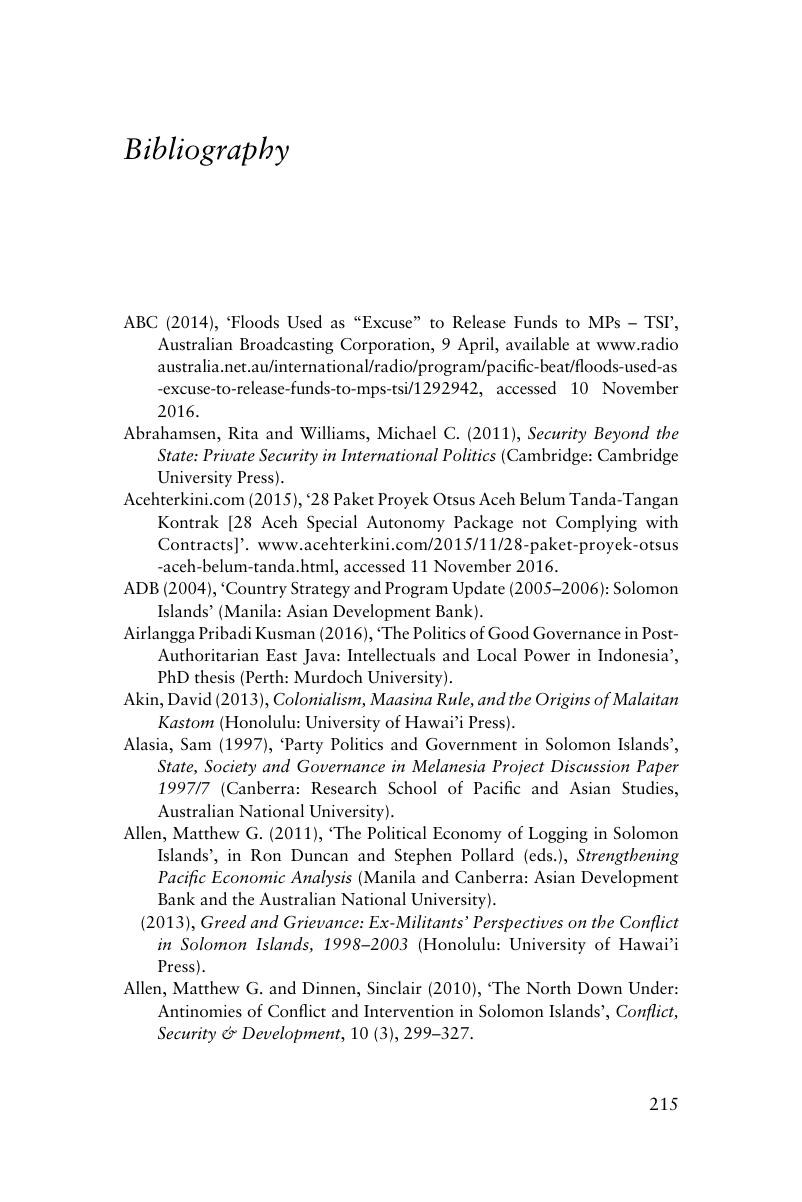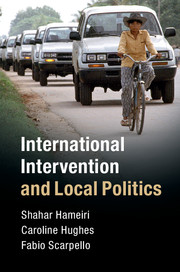Book contents
- International Intervention and Local Politics
- International Intervention and Local Politics
- Copyright page
- Dedication
- Contents
- Acknowledgements
- Abbreviations
- Introduction
- 1 Existing Approaches to International Intervention and Local Politics
- 2 International Intervention and the Politics of Scale
- 3 Public Administration Reform and the Politics of Scale in Solomon Islands
- 4 Public Administration Reform and the Politics of Scale in Post-Conflict Cambodia
- 5 The Politics of Scale and the Aceh Government Transformation Programme
- Conclusion
- Bibliography
- Index
- References
Bibliography
Published online by Cambridge University Press: 11 August 2017
- International Intervention and Local Politics
- International Intervention and Local Politics
- Copyright page
- Dedication
- Contents
- Acknowledgements
- Abbreviations
- Introduction
- 1 Existing Approaches to International Intervention and Local Politics
- 2 International Intervention and the Politics of Scale
- 3 Public Administration Reform and the Politics of Scale in Solomon Islands
- 4 Public Administration Reform and the Politics of Scale in Post-Conflict Cambodia
- 5 The Politics of Scale and the Aceh Government Transformation Programme
- Conclusion
- Bibliography
- Index
- References
Summary

- Type
- Chapter
- Information
- International Intervention and Local PoliticsFragmented States and the Politics of Scale, pp. 215 - 248Publisher: Cambridge University PressPrint publication year: 2017



